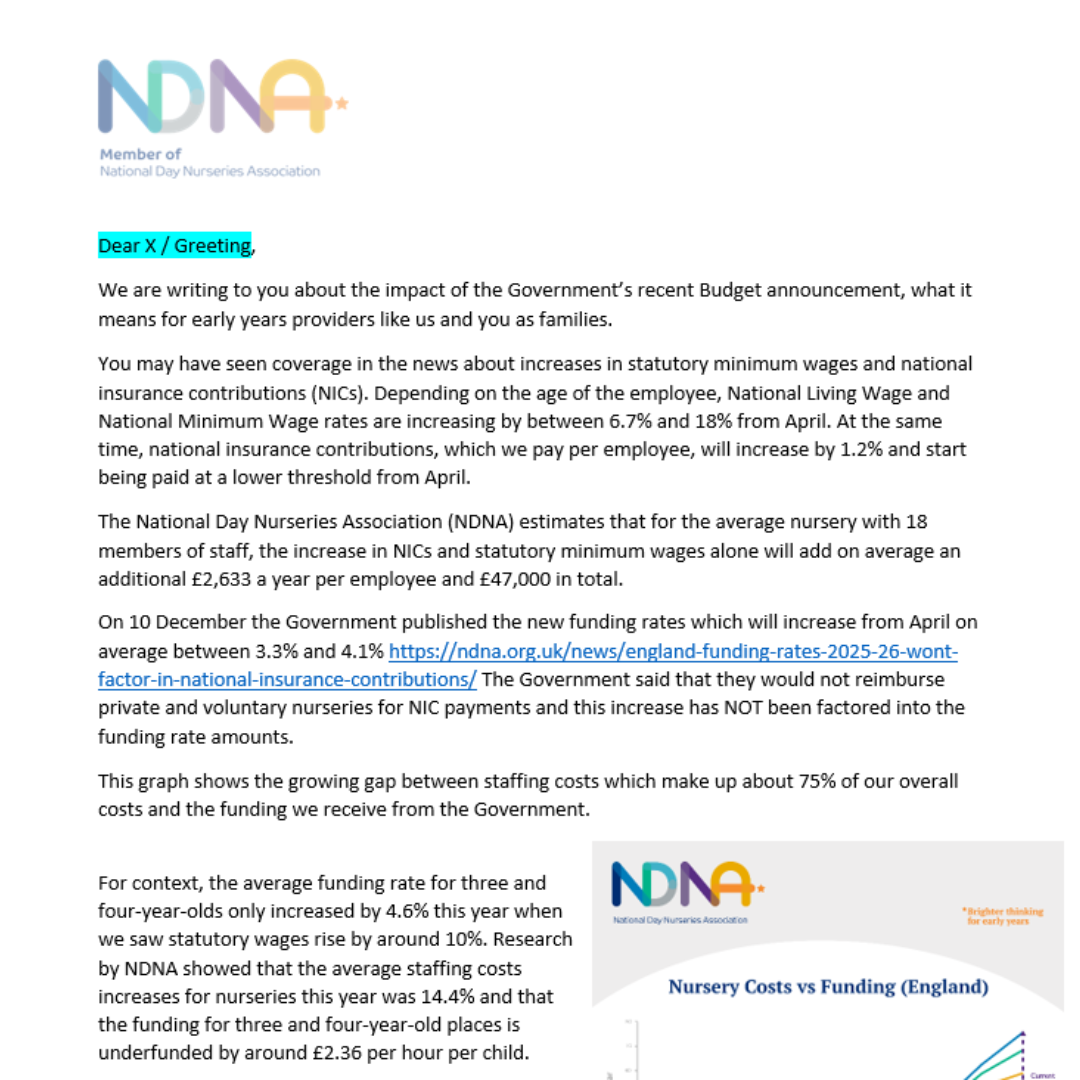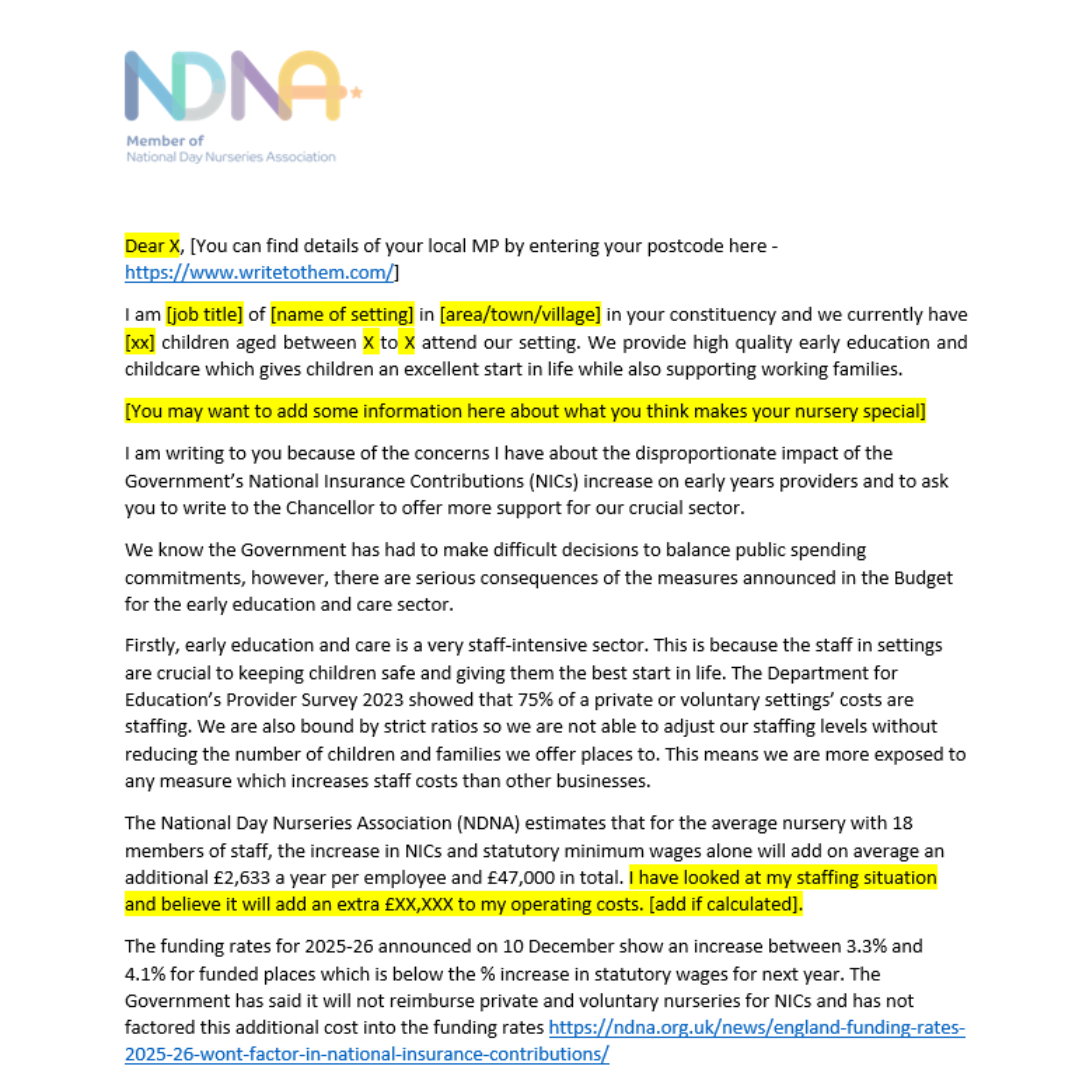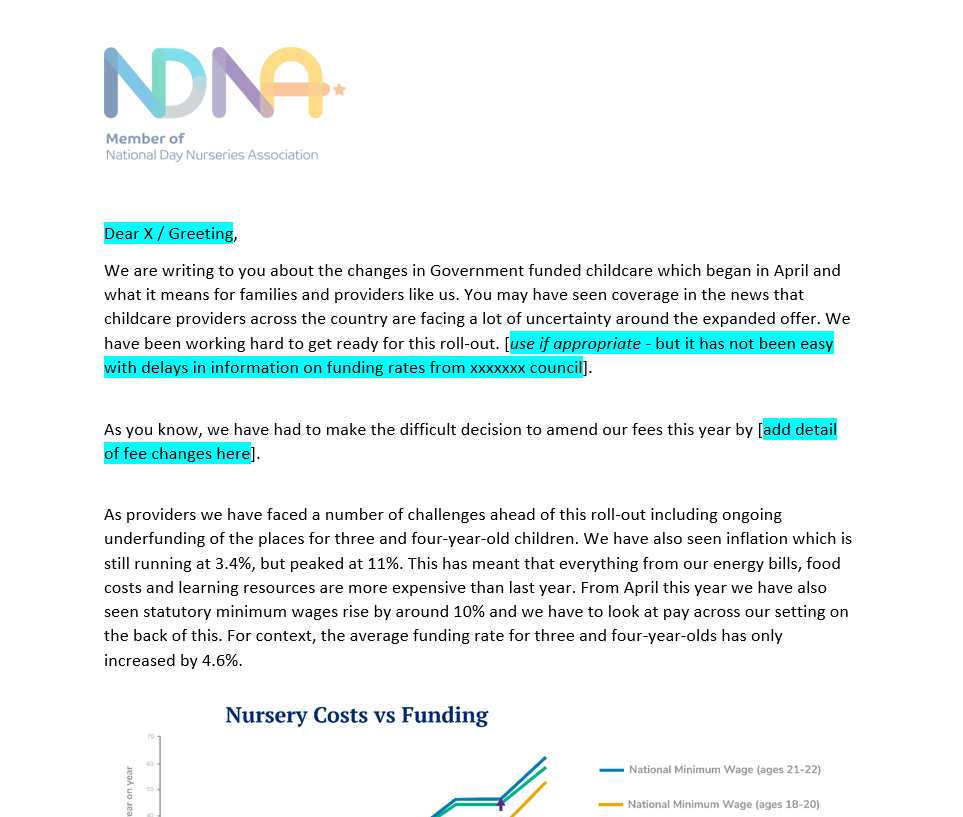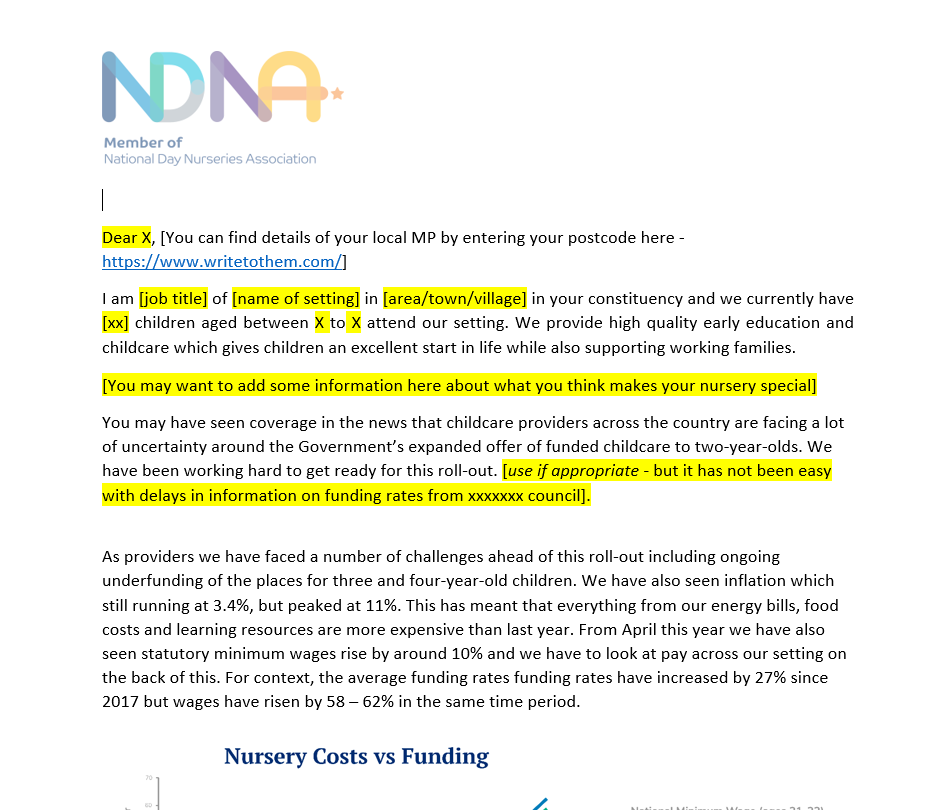Nursery funding for providers
In England, eligible children have access to 30 hours per week in term time or 1140 hours per year for three and four-year-olds of working parents.
- From April 2024, working parents of two-year-olds were able to access 15 hours of funded childcare
- From September 2024, 15 hours of funded childcare were extended to all children from the age of nine months. The Department for Education states “We recommend that everyone who is seeking a childcare place for September 2024 and has not yet done so, speaks to their chosen provider and applies for a code as soon as possible. It may be difficult at this stage to secure your first-place provider. If you are struggling to find a place you should contact your local authority, who will be able to help source a local provider offering the entitlements.” See Government Childcare Choices support here
- From September 2025, working parents of children under the age of five will be entitled to 30 hours funded childcare per week.
Downloads: template letters to parents and MPs – additional employer costs from 2025
Our members have asked us to provide a template letter they can send to their local MPs and also to parents to explain about the challenges that early years providers are facing, especially regarding the higher employment costs which will come from April 2025 as a result of the Budget. Many of you are having to put up your fees as a result and need to explain why.
NDNA has put together a template letter – which you can adapt and update depending on your own circumstances – for you to send to parents. You can use the letter in full or choose sections that back up your own points. We have included national background information and statistics that should support your main arguments.
We have also written a template letter to send to your local MP(s). It would be most effective if you add in local information, how this impacts on your own setting.
Downloads: Guides to funded childcare for September 2024 places
For parents already claiming Tax-Free Childcare, share this guide to funded childcare:
For parents not already claiming Tax-Free Childcare, share this guide to funded childcare:
Nursery guide to supporting parents with funded childcare:
Downloads: Childcare funding letter templates to parents and MPs
It’s not always easy to explain to parents or the wider public about the challenges that early years providers are facing, especially regarding delivery of the funded childcare places.
NDNA has put together a template letter – which you can adapt and update depending on your own circumstances – for you to send to parents. This explains why nurseries must ask parents to pay charges for funded places and why they are also having to put up fees to parents. You can use the letter in full or choose sections that back up your own points. We have included national background information and statistics that should support your main arguments.
We have also written a template letter to send to your local MP(s). This letter sets out the urgent issues facing the sector such as funding and recruitment, but would be most effective if you add in local information, how this impacts on your own setting.
NDNA latest underspends information
Local authorities are continuing to use £millions of early years funding to offset other deficits or put in reserves, according to an investigation by National Day Nurseries Association (NDNA).
Early years funding reporting






